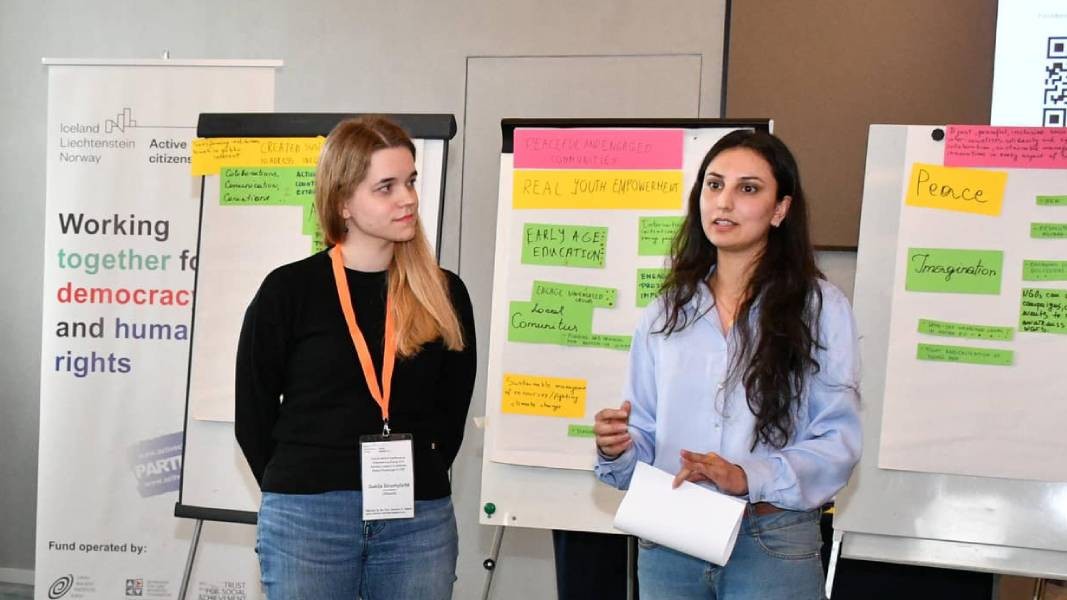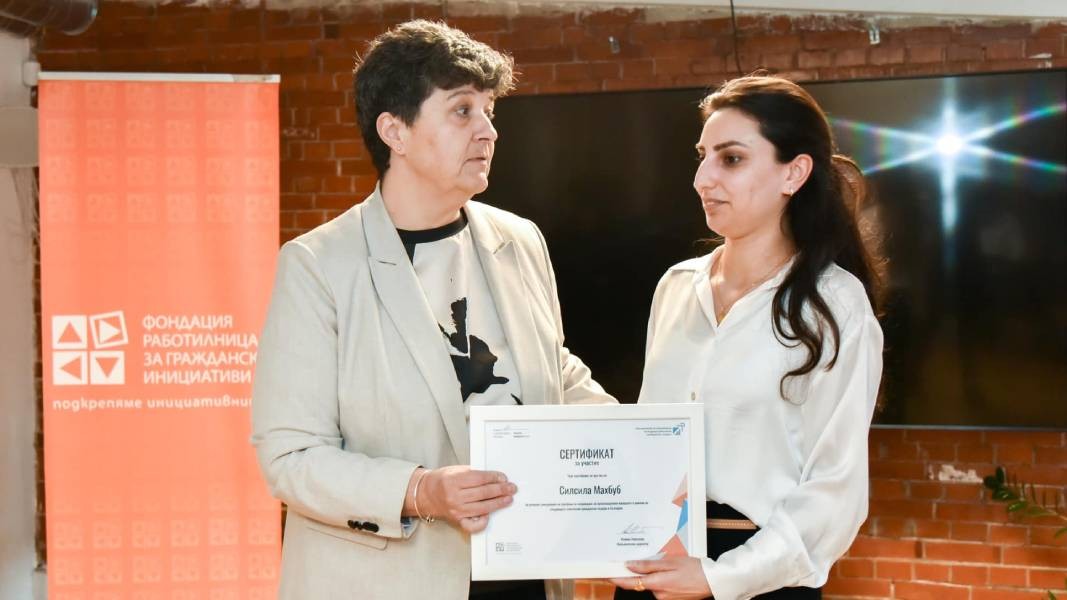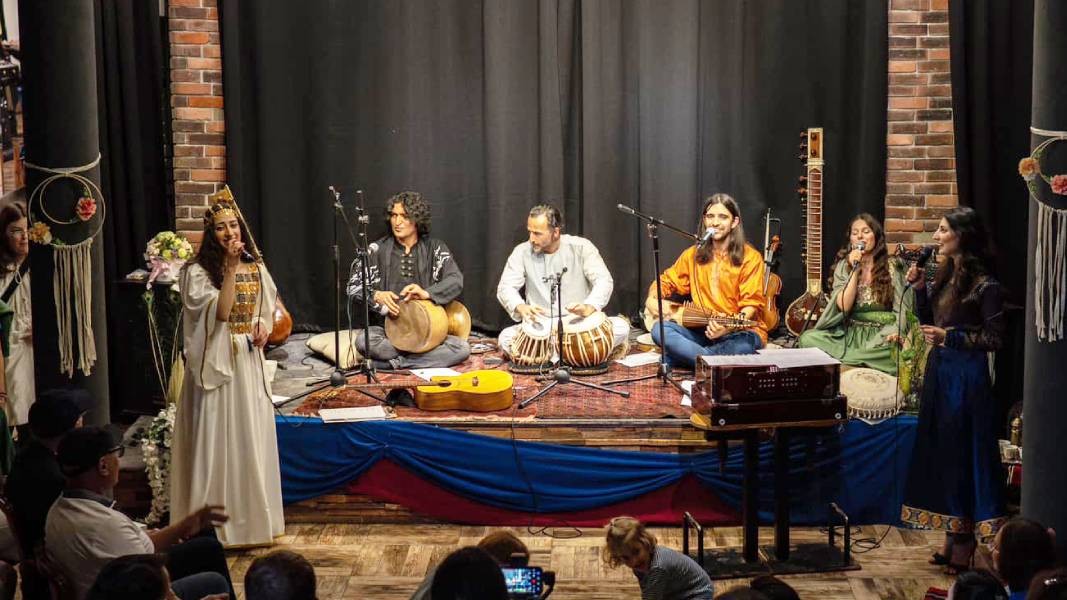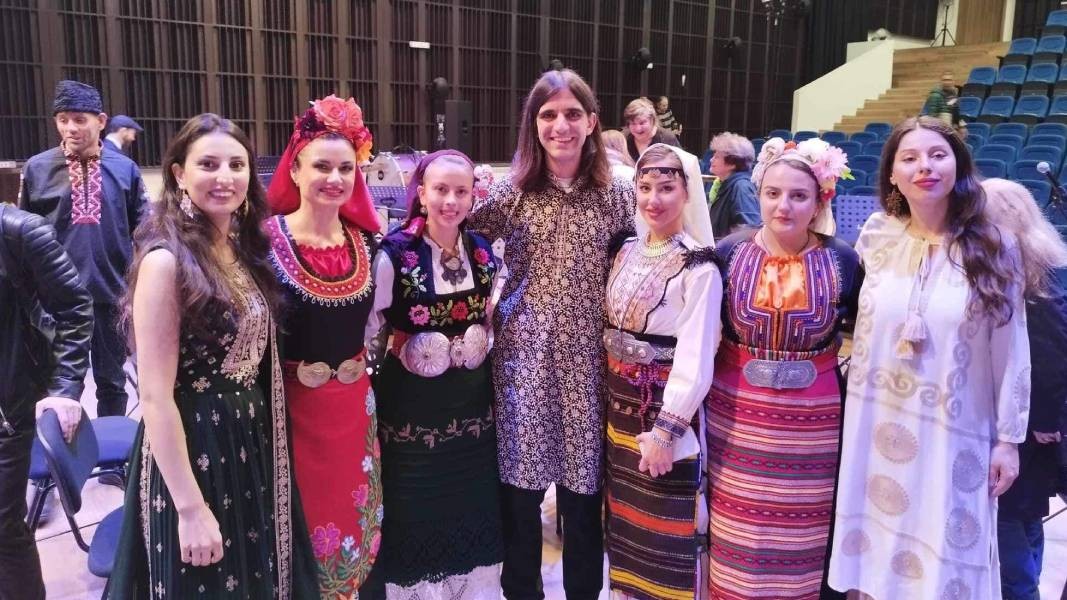21 February is International Mother Language Day, first proclaimed as such by UNESCO and later adopted by the UN General Assembly.
The right to study and to speak one’s mother tongue, or native language, is a basic human right and a civil right which must be protected. That is why the law in Bulgaria clearly states that citizens whose mother tongue is not Bulgarian have the right to study and use their own language, alongside the compulsory study of the Bulgarian language. This helps preserve their identity but also the values of democratic society. We are able to speak our native language, here in Bulgaria every day, and we take this fact for granted, but on 21 February, we are able to demonstrate our support for the efforts of the people with a different mother tongue to adapt and integrate into our society. 
Her mother tongue has remained the only bond Silsila Mahboub still has with the country of her birth – Afghanistan, which she fled because of the military conflict and the violence rife in the country. She came to Bulgaria 10 years ago in the hope it wouldn’t be the last stop in her journey. Here she found shelter and even founded an organization to support the refugee community in Bulgaria. Today, Silsilacan say she is proud of her mother tongue because it is one of the rare languages which have been gaining in popularity, especially among academia in Sofia. Here is more about mother languages and their transfer to foreign territory:
“We first learn our mother tongue at home, then at school. In our country, the Islamic Republic of Afghanistan there are two official languages - Dari and Pashto. There are different ethnic groups in the country, they each have their own dialect, but these are the two principal languages in the country. They are studied at school – alphabet, spelling,” Silsila Mahboub tells us and turns her attention to life in Bulgaria:
“My friends, the people I hold dear here are mostly Bulgarian, and I very rarely find people I can talk to in my native language. Actually, I only speak it when I call my parents. Most of the time I speak English or Bulgarian. And there are times when I really miss speaking my own language, but I also really miss my community. But there are so few Afghans here.”
Everyone needs to speak their native language because there are so many words, expressions and emotions which are difficult to render in another language. “No matter how many years you may have lived somewhere, no matter how many years you may have been learning a foreign language, it will never be like your mother tongue, especially if you have grown up in your country and are trying to integrate somewhere else,” explains Silsila Mahboub.

“How can this be improved? By organizing different cultural events where people can meet, have time to speak their language and demonstrate different cultures. And one more thing – the children of different nationalities living and studying here could have additional classes in their native language. There are a lot of people with this kind of knowledge who can be teachers at such schools. Arabic, Persian or whatever other language could be taught in Bulgaria,” Silsila Mahboub suggests.
“Language is a major asset for any nation, and I would be glad to see people studying and wanting to know my language,” she says further. 
“Ever since I have been in Bulgaria I have only worked with refugees with different organizations, at the moment I have an organization of my own, and what we focus on most are cultural events which foreigners and refugees, but also Bulgarians have always taken part in. They too are interested in getting to know a culture and a language like ours. How do you write, how do you speak in Afghanistan, what the culture is like, even what the cuisine is like. We have never been prohibited to organize any of our meetings and events, on the contrary – Bulgarians take part in them, they say they want to learn Persian and Arabic. These languages are actually taught at Sofia University, the culture of these countries is taught as well. Ever since I found out my native language was being taught in Bulgaria, and at university, that has made me very proud of it. It helps me feel more accepted here, precisely because of the language.”
Translated and posted by Milena Daynova
Photos courtesy of Silsila Mahboub
The village of Hotantsa, near the Danube city of Ruse, is hosting the Hotantsa Sarma Festival , a celebration of Bulgaria’s culinary and folk heritage. Organised by the local cultural and community centre ( chitalishte ) Svetlina-1928 , the festival..
He does not accept the definition of "apostle" or "missionary", although for many he is exactly that - a messenger of God in the world, proclaiming His Word. He first became a priest in his native Vidin diocese, in Northwestern..
Over 80% of Bulgarians are expected to start using artificial intelligence in the next three years , across all age groups. Today, it is almost impossible to find a Bulgarian student who does not turn to ChatGPT when preparing homework. This..
The so-called Seal of Biliteracy was created in 2011 in the US state of California with the idea that in the conditions of a globalized..
On 27 October, the first meeting of Action CA-24150 “Values in Turbulent Times: Navigating Social Change and Challenges (VISTA)” took place in Brussels...
In the summer of 2014, photographer Philippe Bazin and philosopher Christiane Vollaire traveled around Bulgaria, investigating a series..

+359 2 9336 661
